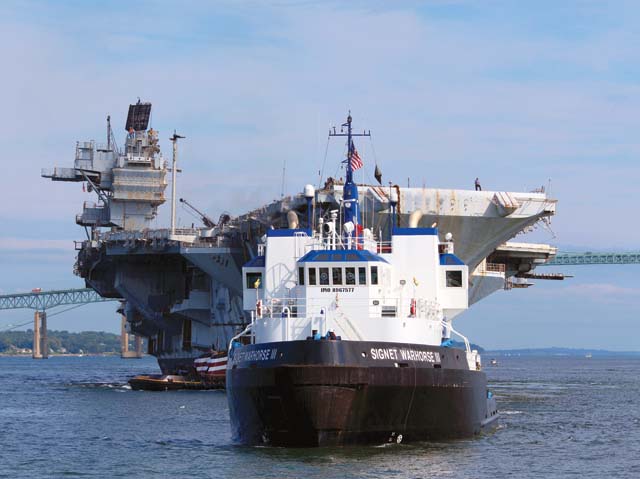The American Waterways Operators (AWO), other marine groups and the U.S. Justice Department want to reopen cases challenging the constitutionality of Massachusetts tank vessel laws enacted after a 2003 oil spill in Buzzards Bay.
The cases were put on administrative hold in 2011 while the Coast Guard finished an environmental impact assessment of its 2007 rule preempting the state’s 2004 law. Earlier this year, the agency said it found no significant impact from its 2007 rule, but it also has proposed new regulations for the bay.
AWO and the International Association of Independent Tanker Owners (Intertanko), the Chamber of Shipping of America, the International Chamber of Shipping, and the International Group of P&I Clubs argue the federal government and not the states have jurisdiction over tank vessel operations.
“It’s always important to uphold the primacy of federal law in vessel safety and environmental protection,” AWO lawyer Jonathan Benner said after filing motions in federal court in early August. “If every state or municipality along the waterway can opt out of the federal system, then you would have chaos.”
Massachusetts enacted its laws after Bouchard Transportation Co. Inc.’s barge B. No. 120 drifted off course in 2003 and hit a shoal, releasing 98,000 gals. of No. 6 fuel oil into the bay.
The 2004 state law requires tug escort and manning rules for all tank vessels in the bay. The 2009 state law tripled the fines if there were a spill, if operators didn’t give 24-hour advance notice to the state or if they didn’t request a state pilot to board their vessel. Operators pointed out that vessels already are required to have a federally licensed pilot. Fines could range from $1.5 million to $6 million a day.
A lower court judge ruled against the state saying federal law prevails, but an appeals court sent the case back in 2011 because the Coast Guard had not finished the environmental impact assessment of its 2007 rule.
The state opposes reopening the case, arguing that the Coast Guard’s new rulemaking negates the need for further court review right now. It said the Coast Guard hasn’t indicated whether it would move ahead, abandon or delay the proposed regulation.
The agency suggested changing some monitoring and escort requirements to apply only to the roughly 600 tank barges carrying 5,000 or more barrels of oil or other hazardous material rather than to nearly all 20,000 commercial vessels that cross the bay annually.
“The majority of vessels currently monitored do not pose significant threats of pollution incidents,” the Coast Guard said in its advance notice of proposed rulemaking last year. The tank barges would be actively monitored, would need an independent pilot whether single or double hull, and under certain conditions, such as bad weather, double hull barges may need a tug escort.
Single-hull tank barges always need tug escorts, but under the Oil Pollution Act of 1990 (OPA ’90), those barges must be phased out by Jan. 1, 2015.




